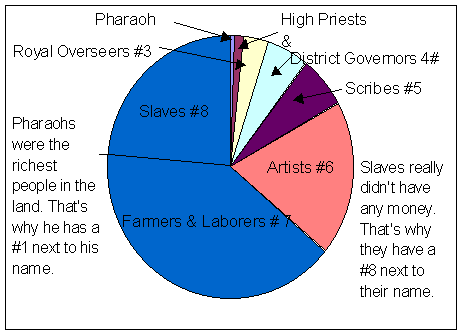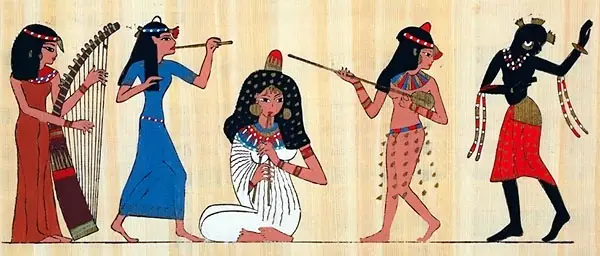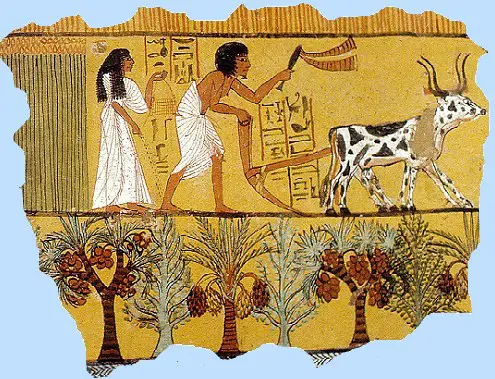
A look into the social pyramid of Egypt is necessary to understand the jobs people took to: Ultimate power was vested in the Pharaoh, the king of Egypt. Though gods were the controllers of the country, Pharaoh was believed to be God in human form.
About Pharaoh’s
Pharaoh was the ultimate authority in the country. He was to manage the army and protect the people. He was in charge of enforcing law and order in the country.The vizier was an important court official. He had to manage building and construction, manage labor, collect taxes, supervise administration, maintain accounts etc. Noblemen helped the Pharaoh run the country these were the people that worked in the government.
Scribe was an important occupation in Egypt. Scribes were the few literate people of Egypt. They were responsible for Egyptian Jobs, relating to teaching. The Priests and Priestesses looked after the temples and conducted the religious ceremonies.

Egyptian Jobs in Detail
Astrologers also had important jobs relating to religious observances and the location and position of temples and tombs.
Egypt is famous for their knowledge in architecture to which the great pyramids serve testimony. Therefore, building and construction were also important jobs in the country. The vast building programs in Ancient Egypt necessitated the jobs of engineers and architects. Forced labor and slave system existed.
Though Egypt was a peaceful country, there existed an army. Commands in the army provided the opportunity for ordinary people to rise in society. The most common jobs were related to the foot soldiers but the charioteers were a respected force.
 There were craftsmen who were also employed for complicated stone cutting and creating sculptures. Artists were employed to decorate the homes of wealthy Egyptians and to decorate tombs and temples. There were entertainers who were the dancers and acrobats who entertained wealthy Egyptians. Dwarfs were a popular form of court entertainment.
There were craftsmen who were also employed for complicated stone cutting and creating sculptures. Artists were employed to decorate the homes of wealthy Egyptians and to decorate tombs and temples. There were entertainers who were the dancers and acrobats who entertained wealthy Egyptians. Dwarfs were a popular form of court entertainment.
Farmers also lived a merry life in ancient Egypt as the Nile provided an excellent source of irrigation. Merchants bought and sold commodities. There were also fishermen, manual laborers, weavers, metal workers, potters, carpenters, upholsterers, tailors, shoemakers, glass-blowers, boat-builders, wig-makers, and embalmers. Story-tellers, cooks, gardeners, masons, miners, and butchers also existed.